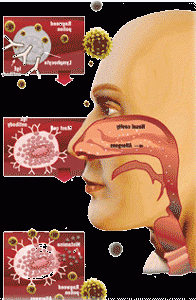Allergic eye(Allergic Conjunctivitis)
Many people suffer the symptoms of itching, burning, watering and redness of the eye, and puffiness of the eyelids.
Diagnosis:
Diagnosis of Allergic rhinitis or Conjunctivitis requires a complete review of your history and physical exam.
To help determine specific triggers, allergy testing is also helpful.
Types of allergy test:
Skin test (LINK) – Food, Environmental, Drug
Blood Test (LINK) – Food, Environmental, Drug
Like most allergists, we opt to perform skin testing as it is safe, reliable and yields prompt results that we can use to tailor your individual treatment plan.
Treatment:
Avoidance of your specific triggers is the best way to manage allergies and reduce your need for medications.
Medications for hay fever and allergic conjunctivitis include:
- Nasal corticosteroid sprays. These help manage nasal itching and runny nose caused by hay fever. Most are available over the counter. Examples include fluticasone propionate (Flonase), triamcinolone (Nasacort AQ), mometasone (Nasonex) and budesonide (Rhinocort Aqua). Side effects can include an unpleasant smell or taste and nose irritation or nose bleed.
- Antihistamines. These can help with itching, sneezing and a runny nose. Many over the counter options are available: loratadine (Claritin, Alavert), cetirizine (Zyrtec Allergy) and fexofenadine (Allegra Allergy).
- Nasal antihistamine sprays help to relieve itching and congestion and are available only by prescription. Examples include azelastine (Astelin, Astepro) and olopatadine (Patanase)
- Antihistamine eye drops help relieve eye itchiness and eye irritation caused by hay fever.
- Decongestants. These medications are available in over-the-counter and prescription liquids, tablets and nasal sprays. Over-the-counter oral decongestants include pseudoephedrine (Sudafed, Afrinol, others). Nasal sprays include phenylephrine (Neo-Synephrine) and oxymetazoline (Afrin). These are not recommended for daily use as they can lead to insomnia, increase in blood pressure and in some cases can worsen your allergy symptoms.
Allergy Shots or Tablets (Allergy Immunotherapy) helps to shift your immune system away from its allergic tendency and can lead to reduce symptoms and need for medications over time.
Your doctor can help determine which type of therapy is best for you.
Additional Resources:
https://acaai.org/allergies/types/hay-fever-rhinitis
 Hay fever (Allergic Rhinitis) can cause symptoms such as a runny nose, itchy eyes, congestion, sneezing and sinus pressure.
Hay fever (Allergic Rhinitis) can cause symptoms such as a runny nose, itchy eyes, congestion, sneezing and sinus pressure.
